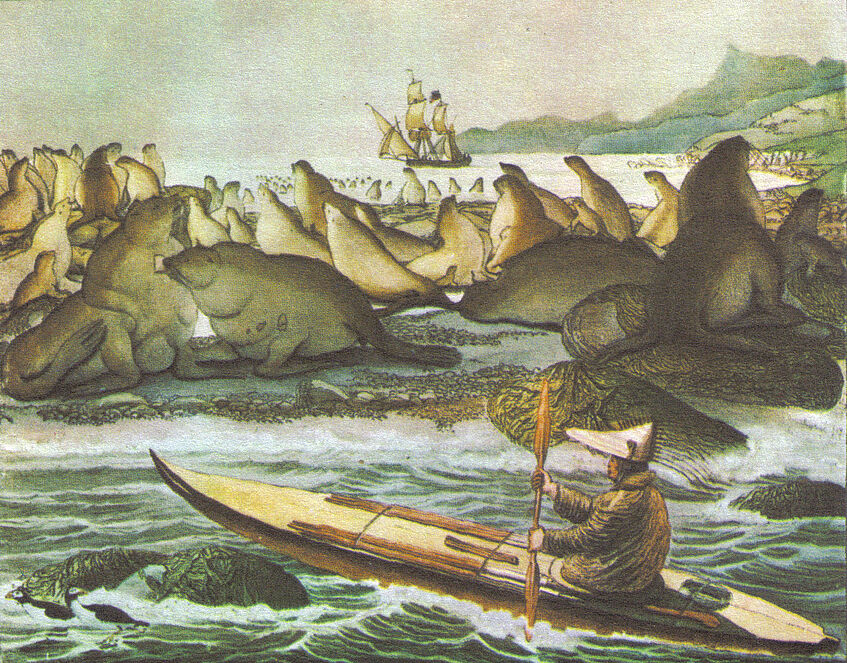Rivals of the Past, Children of the Future: localizing Russia within US national identity formations from a historical perspective
This research project analyses the significance of Russia and Russian bodies for US identity formations and the negotiation of so-called ‘Western values’ from a historical perspective. It identifies Russian tropes as central within current cultural discourses on US national values and asks for the roots of this trend. In other words, it asks when American popular culture started to look at Russians to differentiate American singularity from there.
It argues that the significance of Russian bodies for the formation of US-identities dates back to the late eighteenth-century, when American-born explorer developed an interest in Russian America (Alaska). While the importance of American westward expansionism and explorer culture for American identity formations has been established by American studies scholars such Henry Nash Smith already in 1950, Alaska and its Russian colonizers have never been considered within such studies. This project fills this research gap, analyzing American testimonies about Russia’s colonial history in Alaska, nineteenth-century anthropological and historic works on Alaska, as well as oral histories of Alaskan Indigenous people.

The Russian "Rurik" sets anchor near Saint Paul Island in the Bering sea in order to load food and equipment for the expedition to the Chukchi sea in the north. Drawing by Louis Choris in 1817. Copyright: Public Domain (https://commons.wikimedia.org/wiki/File:Choris,_Saint_Paul.jpg)
